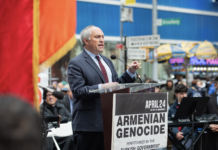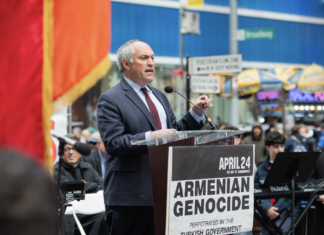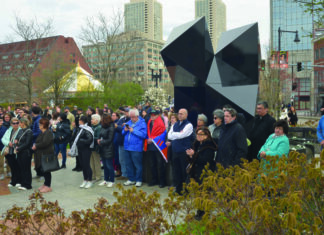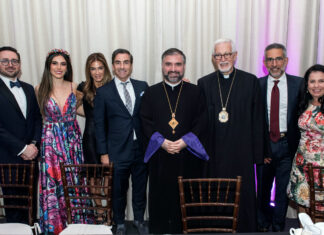By Hagop Vartivarian
Lebanon had already turned into the center of Armenian life in the Middle East. The Eighth General Representative Assembly in Cairo, from October 23, 1946 to November 2, with a concluding session from October 11 to 22, 1947, became fateful for the ADL for various reasons. First of all, the slogan “With the homeland, and for the homeland” was adopted.
The party headquarters was transferred from Cairo to Beirut and Parounag Tovmassian was elected chairman of the Central Executive. Kersam Aharonian was elected secretary. Tovmassian remained in this post until 1982, for a full 35 years.
The repatriation movement began, emigration from the diaspora to Armenia. Approximately 100,000 Armenians repatriated from Syria, Iraq, Palestine, Lebanon, Greece and France to Soviet Armenia. The ADL played a central role in this large-scale undertaking.
Immediately afterwards, the Cold War between the West and the Soviet Union began. As a result of this, the North Atlantic Treaty Organization (NATO) was formed, and included Turkey, which did not participate in World War II. As a result of the Cold War, the ARF officially took the side of theWest and the sad consequence of this was the division in Diasporan-Armenian life and the Cilician See.
Tovmassian remained as the always-alert watchman of Armenian-Diasporan relations. Nearly every year he visited Yerevan, where he examined all the important issues affecting Armenian national life together with men of state. Sometimes he acted severely towards those led by the anti-nationalist counsel instructed by world communism who sometimes forgot our Armenian values. Through his very delicate, innate diplomatic talent, Tovmassian had a beneficial influence on these relations.









